|
Getting your Trinity Audio player ready...
|
The Philippines is a fresh breeding ground for startups and innovation. With a growing economy, a young and vibrant population, and increasing digital adoption, the country has a lot to offer in terms of opportunities for budding startups.
At the recent Endeavor Philippines 10th anniversary celebration, I spoke with high-impact entrepreneurs and industry leaders to uncover the “secret sauce” to scaling businesses in this dynamic market. From embracing technology to fostering a culture of innovation, here are key takeaways for startups, developers, and Web3 enthusiasts.
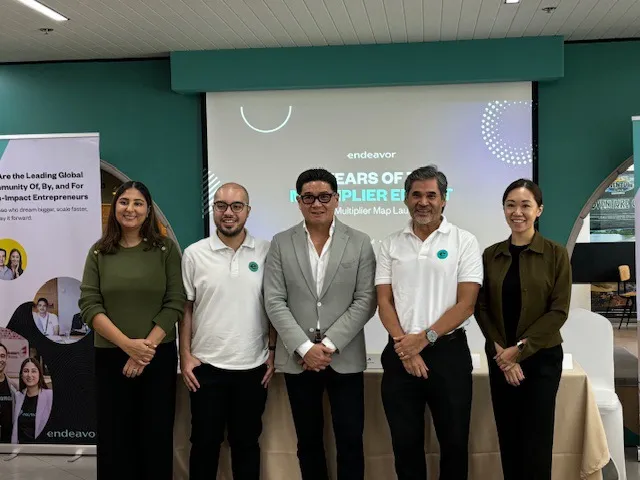
Leveraging the Philippines’ unique market dynamics
Manny Ayala, Co-Founder and Managing Director of Endeavor Philippines, painted an optimistic picture of the country’s potential.
“The long-term macroeconomic prospects of the Philippines are very, very promising,” he said. “We’re a large country with an average age of 24 and a healthy GDP per capita growth rate of 5-6%. By 2050, some economists predict we could be the 16th largest economy in the world, so by that alone, it’s an attractive market.”
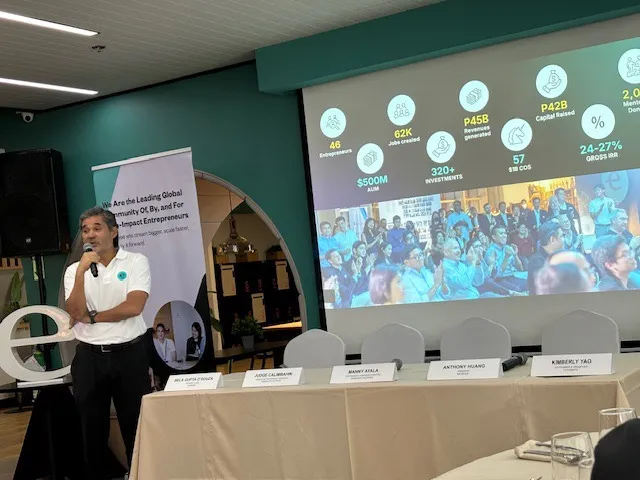
For his part, this mix of youthful energy and untapped opportunities positions the Philippines as a “frontier market” for both traditional and Web3 startups. Entrepreneurs looking to scale must recognize and adapt to these evolving market dynamics.
Technology as the catalyst for growth
“Technology is like the yeast in the bread,” Ayala explained. “You sprinkle technology in, and things expand. You can do things faster, better, cheaper, and even create brand-new categories.”
A perfect example is CloudEats, a virtual kitchen platform that uses data-driven processes to optimize everything from cooking to delivery. Its Co-Founder and Group CEO, Kimberly Yao, stressed the transformative role of innovation, saying, “Our food production facilities are designed to address real-world problems like transportation and food accessibility. While global technologies like robotics are exciting, we’re focused on solving these immediate, on-the-ground challenges.”
For startups in Web3, blockchain presents similar transformative potential. For Endeavor-supported company Coins.ph, for instance, blockchain is utilized to facilitate global money transfers without branding itself explicitly as a blockchain company.
Embracing digital transformation in legacy industries
Even legacy businesses are harnessing technology to stay relevant. President of SSI Group, Anthony Huang, shared insights from their digital journey, saying, “We’ve evolved into a unified retail operation, merging both digital and brick-and-mortar. As part of a massive transformation project, we’re integrating AI tools into our ERP system for demand forecasting and optimizing our CRM practices.”
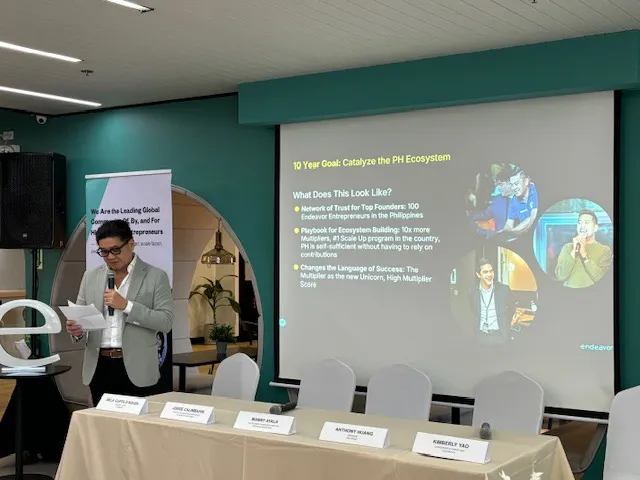
SSI’s hybrid approach shows that scalability isn’t just about digital-first models but also about reimagining traditional businesses with technology.
Navigating the challenges of Web3 adoption
Web3 technologies like blockchain and digital currency are generating buzz, but their adoption in consumer-facing industries remains nascent in the Philippines, says Bela Gupta D’Souza, Founder and CEO of Edamama.
“There needs to be regulatory alignment and infrastructure development; the government must recognize and adopt blockchain as a strategy across industries before consumers can truly benefit,” Gupta D’Souza said, highlighting the need for foundational changes.
This perspective aligns with Ayala’s observation of a “blockchain winter” that temporarily slowed its growth but is now picking up steam again after the re-election of Donald Trump as United States president, particularly in the gaming and digital currency sectors. Ayala advised startups entering this space to focus on creating value beyond hype, ensuring practical and scalable applications of the technology.
Building a resilient business model
Gupta D’Souza said scaling a startup requires more than rapid growth—it demands sustainability.
“Find a problem to solve that achieves product-market fit, pursue your passions, but ensure they align with market opportunities. Also, be profit-focused. The days of blitz-scaling without sustainable growth are behind us,” she advised.
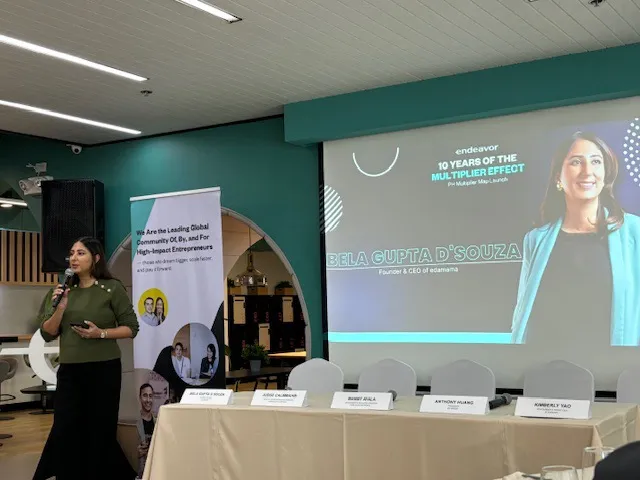
This focus on sustainability resonates with global trends, where investors highly favor businesses that demonstrate growth and profitability.
The role of mentorship and community
Ayala stressed the importance of mentorship in helping entrepreneurs navigate challenges, saying, “We (Endeavor) connect startups with 50 of the best corporate leaders and entrepreneurs locally and globally. Access to experienced mentors and niche VCs is crucial for scaling tech-enabled businesses.”
Huang agreed with Ayala, emphasizing that the retail sector’s digital evolution was fueled by learning from global best practices and adapting them locally.
Fostering a culture of entrepreneurship
Culturally, the Philippines is shifting toward greater acceptance of entrepreneurial risk.
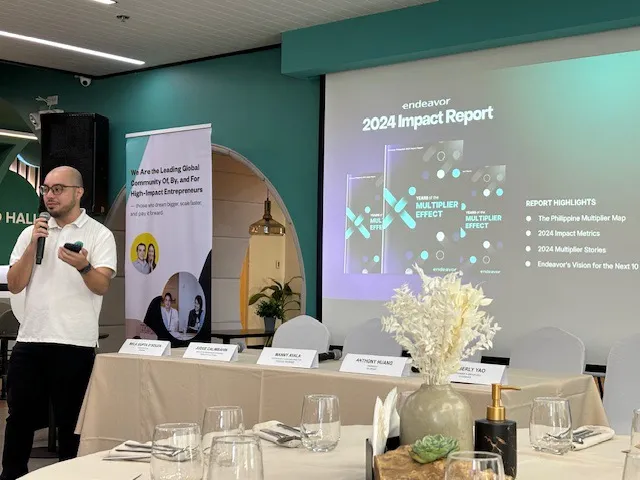
“Young graduates today see the value of being entrepreneurial, whether it’s running a Shopee store or starting a small business. However, the ecosystem needs more success stories to inspire others to take the plunge,” Gupta D’Souza observed.
Funding remains a challenge, she added. But the rise of early-stage investors like Kaia Founders and Foxmont Capital Partners is addressing this gap. By supporting prototypes and early growth, these investors are helping startups lay a strong foundation, she pointed out.
Web3 and the future of innovation
Looking ahead, Ayala expects a renewed interest in blockchain and digital currency, while Yao envisions robotics playing a transformative role in industries like food production.
“Globally, robots are already making coffee and cooking Chinese dishes. In the Philippines, we’re 10-15 years away from that, but the potential is enormous,” Yao noted.
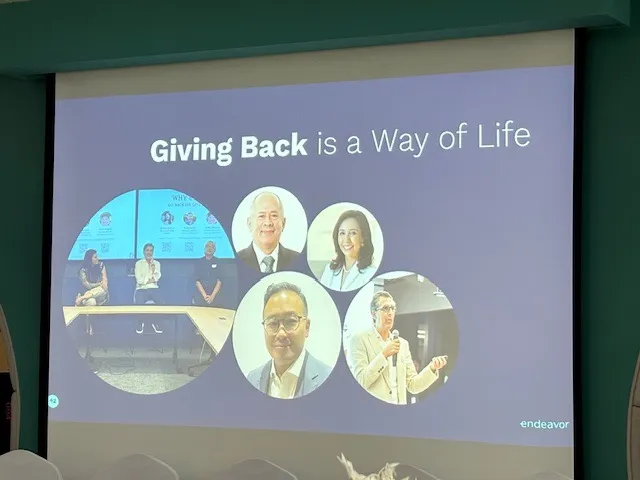
For Web3 startups, scalability will depend on addressing practical challenges. From secured payments to decentralized platforms, the key lies in bridging the gap between cutting-edge technology and real-world applications.
Advice for aspiring entrepreneurs
“Adopt technology not just as a tool but as a catalyst for innovation” – Manny Ayala
“Test product-market fit rigorously and prioritize sustainable growth” – Gupta D’Souza
“Stay adaptable and continuously integrate new technologies into your operations” –Anthony Huang
“Focus on solving real-world problems while staying open to global advancements” – Kimberly Yao
The Philippines offers both challenges and opportunities for startups; from its promising economic prospects to its tech-savvy population, the country is ripe for high-impact entrepreneurship. By leveraging technology, fostering community, and prioritizing sustainability, startups can scale effectively and contribute to the country’s innovation ecosystem.
For entrepreneurs in traditional sectors, Web3, or emerging technologies like artificial intelligence (AI), blockchain, and robotics, the “secret sauce” lies in finding the right balance between ambition, adaptability, and a focus on solving real problems. The insights shared by the entrepreneurs at Endeavor Philippines 10th year Anniversary celebration, serve as both inspiration and a practical guide for navigating the ever-evolving startup landscape.
Watch: Block Dojo’s role in Philippines’ startups successes

 08-29-2025
08-29-2025 





